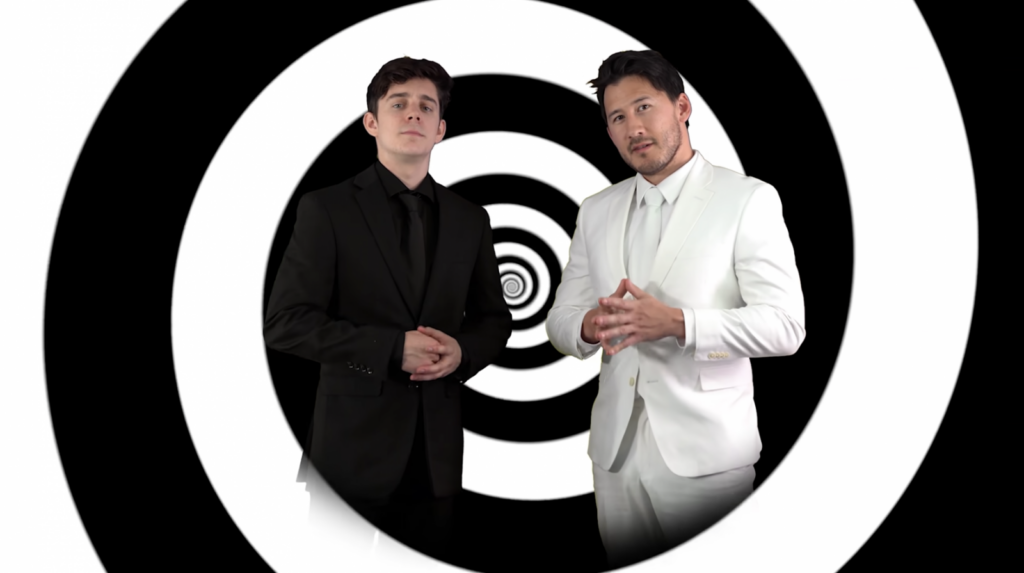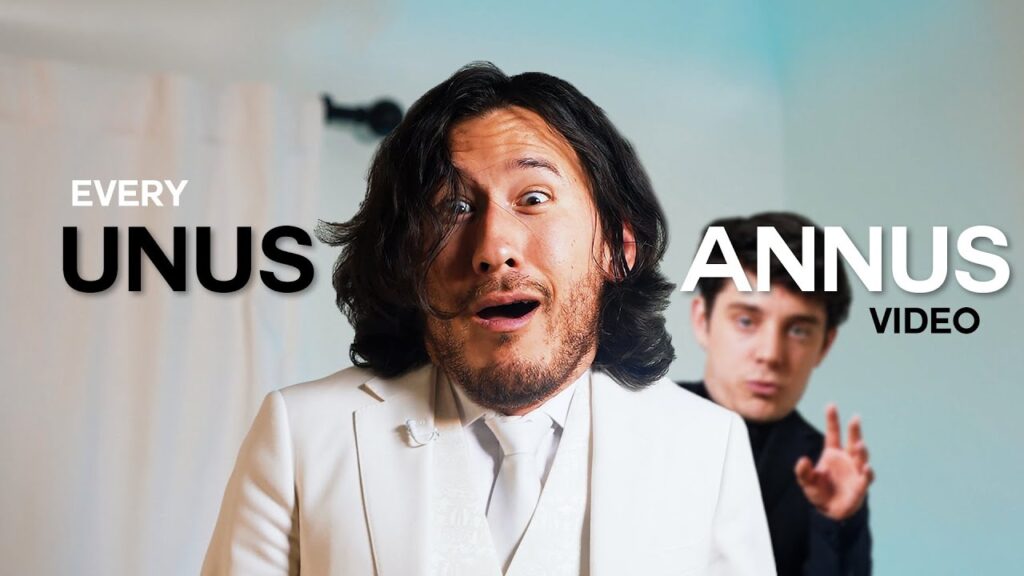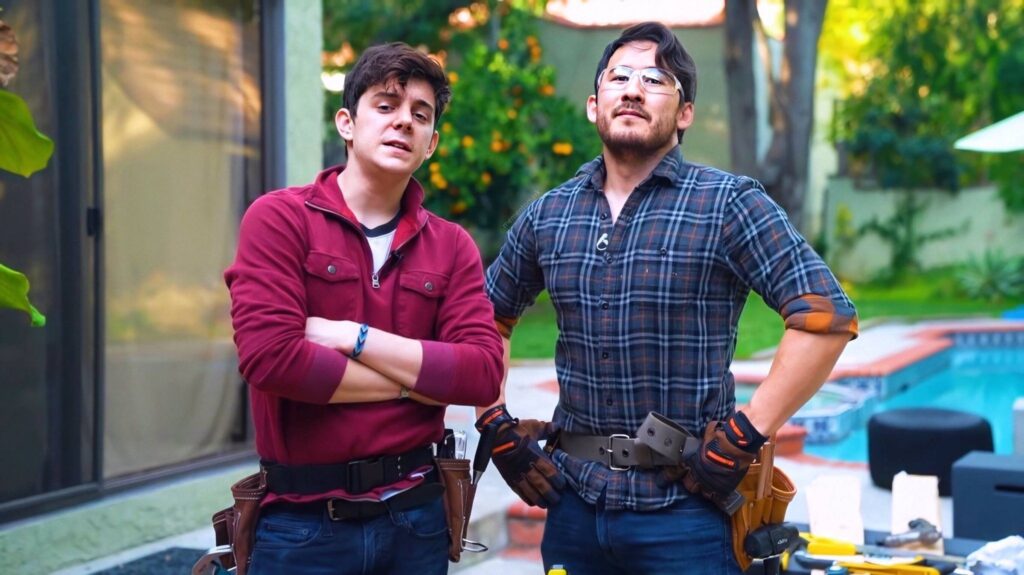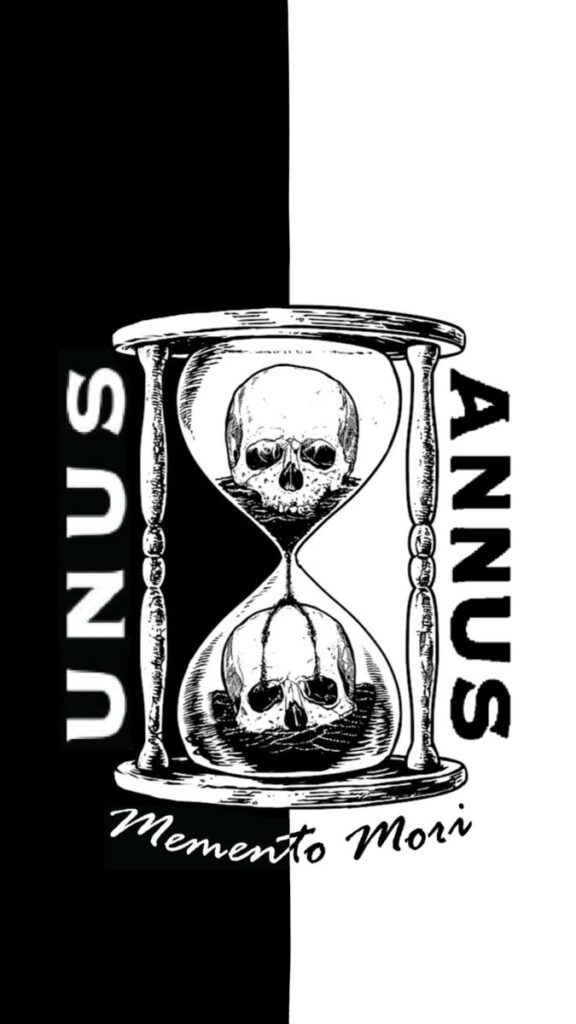I’m not going to make excuses. It is bizarre to write a eulogy for a deleted YouTube channel, especially one that fixated so frequently upon urine, unintended uses for sex toys, and the occasional and deliberate collision of objects in the testicular region. Bizarre, but justified, because even though Unus Annus, the brainchild of YouTubers Mark Fischbach (Markiplier) and Ethan Nestor (CrankGameplays), regularly skirted near the edge of the NSFW cliff, it never went over. In the process, it made a valuable point.

No, it’s too late to find out for yourself about Unus Annus. The channel is deleted and all 364 days of fully-produced content is now gone. Further, Fischbach has adamantly stated that if downloaded episodes from the channel should appear on other channels, he will pursue takedown orders stringently. That might manifest itself not in blanket removals of the offending videos, but removal of those user channels entirely. He’s making the threat real: Unus Annus is dead. You can’t bring it back.
If you missed out on the videos of the duo learning how to pole dance, trying a super-hot tortilla chip, or determining how much Jell-o is too much for one person to consume, it’s too late now and that’s the point. The method of the channel was comedic but the purpose was an exploration of impermanence.
That goal was expressed right from the start with a video of Fischbach dressed in a white suit, Nestor in a black suit, explaining the following year of content would be dedicated to pushing themselves farther, often in uncomfortable and embarrassing ways. That included pursuing a weird idea as far as it could go, or – once COVID-19 lockdowns went into action – screwing around with the YouTube medium at a safe social distance to distract viewers from the worrisome pause their regular lives had to go on.

Upon the first anniversary of the channel’s existence, all of the content, along with the literal months and creative-hours of constructing it, the thousands of dollars spent on shooting and editing it, and the psychological capital spent on bringing it forward would be deleted from existence. (I am unaware if Fischbach, Nestor, and Fischbach’s partner/co-producer Amy Nelson intend to keep the videos for themselves or wipe the hard drives.) While the exploits offered the plot of the endeavor, erasure was always the “finish line” for it.
While this is a first for YouTube, Unus Annus joins a long history of similar efforts. I know it is ridiculous and pretentious to group a series of videos including people eating items humans should never consider ingesting, but hear me out. Once upon a time, comic books were temporary amusements, meant to be read a few times and then trashed like any other newsprint product. Prior to Sgt. Pepper’s Lonely Hearts Club Band and Pet Sounds, rock & roll was also a disposable product. It got you dancing, and that’s it. There were the “happenings” of 1960s culture, pop-up events, art installations, meant to be ephemeral and transitory. Gig posters were lavish and creative and meant to be thrown away when the show was over.

Going one step farther, the massive outdoor art installations of Christo gave cities a few weeks of transcendent beauty and then were taken down. They were never meant to be permanent. John Cage’s musical piece “4′33″ (pronounced “four minutes, thirty-three seconds”) is comprised of him sitting at the piano for the titular length of time while NOT playing anything. Banksy’s art piece which wound up for auction at Sotheby’s on October 5, 2018, was built into a shredder and started self-destructing before the horrified eyes of art speculators. It, like Cage’s piece, was meant to subvert and criticize the medium, not be canonized within it. These were examples of exquisite trolling, but were turned into bronze-dipped “art” by so many who didn’t quite get it.
Serious-minded musicians still play 4’33, and still charge ticket prices for its performance. Banksy’s destructed art is now more valuable than when it was in whole form, purportedly to the street artist’s ire. And we live in a culture where YouTube content creators chase having the most videos over any other channel, garnering the most subscriptions, “likes,” and views. We understand why. If the videos are monetized, they can generate revenue consistently over time. There’s also a desire to gain the bragging rights, to be the biggest and baddest on the platform, and arrest the title of GOAT and lord it over others. Some view it not as a playground, but as a nation to be conquered and ruled over for an indeterminate time. YouTube is an entertainment business. It’s just that more often than not, the entertainment is in lowercase and the business is all caps.

That is what was so intriguing about Unus Annus. It was not built to last forever but, instead, to have a predetermined lifespan wherein Nestor and Fischbach (and to be fair, Nelson and a host of talented video editors across the globe) made the most of that time, and not always in gross-out terms either. This was made clear on a regular basis, primarily from Fischbach, who repeated the mantra that everyone has an end-date. Not everyone has the luxury of knowing what that end-date would be, so it is important to capitalize the time to think big ideas, try new and scary things, and create for the sake of creating, not solely to build a perpetual I.P. that outlives you and your heirs. One virus (physical or digital), one wrong turn in the car, and/or one missed heartbeat could hasten that end-date. So much wasted time.
Okay, so some would counter “but the experiments with water thickener, the guard dog training session, and making scrambled eggs with a rotating phallus aren’t wasted time?”
1) Did you laugh? If so, then it was worthwhile, especially in the dung heap the year 2020 turned out to be.
2) No, it wasn’t high art, but so much of the art we revere today wasn’t intended to be so. It was a creative expression that made you think afterward.
Wouldn’t we be a lot better off as a society today if, instead of lusting after the destruction of a person or whole groups of people for any number of stupid reasons, we channeled that energy into making something? If we tried something new? And preeminently, if we did so without fear, concern, or insistence upon legacy, or even looking stupid in the process?

The takeaway is that the Unus Annus channel was built for anti-legacy, set to self-destruct, and meant to encourage others to stop burning through their lives in the ceaseless pursuit of gain, or of a hereafter, and value it now. Y’know, “carpe diem” and all that stuff.
Fischbach, Nestor, and Nelson will likely never be thought of in the same context as an Abramovic, Kesey, or any other creative individuals who built entropy into their work, and I think they’re okay (even grateful) they won’t. They weren’t competing with anyone but themselves. If anything, I think they though of themselves as the person who made a very elaborate doodle on the back of a diner’s paper placemat. They did it for their own amusement, but perhaps also for the waitstaff that would collect it after the meal. Maybe they’ll be impressed enough to show their co-workers. They might even keep it for themselves, or they might just trash it and move on to the next table. The essential was that the doodle existed at all.
There’s a high probability that Unus Annus will be only vaguely remembered in a year’s time by those who watched the videos, and that’s okay as well. One day, we’ll all just be memories, too.